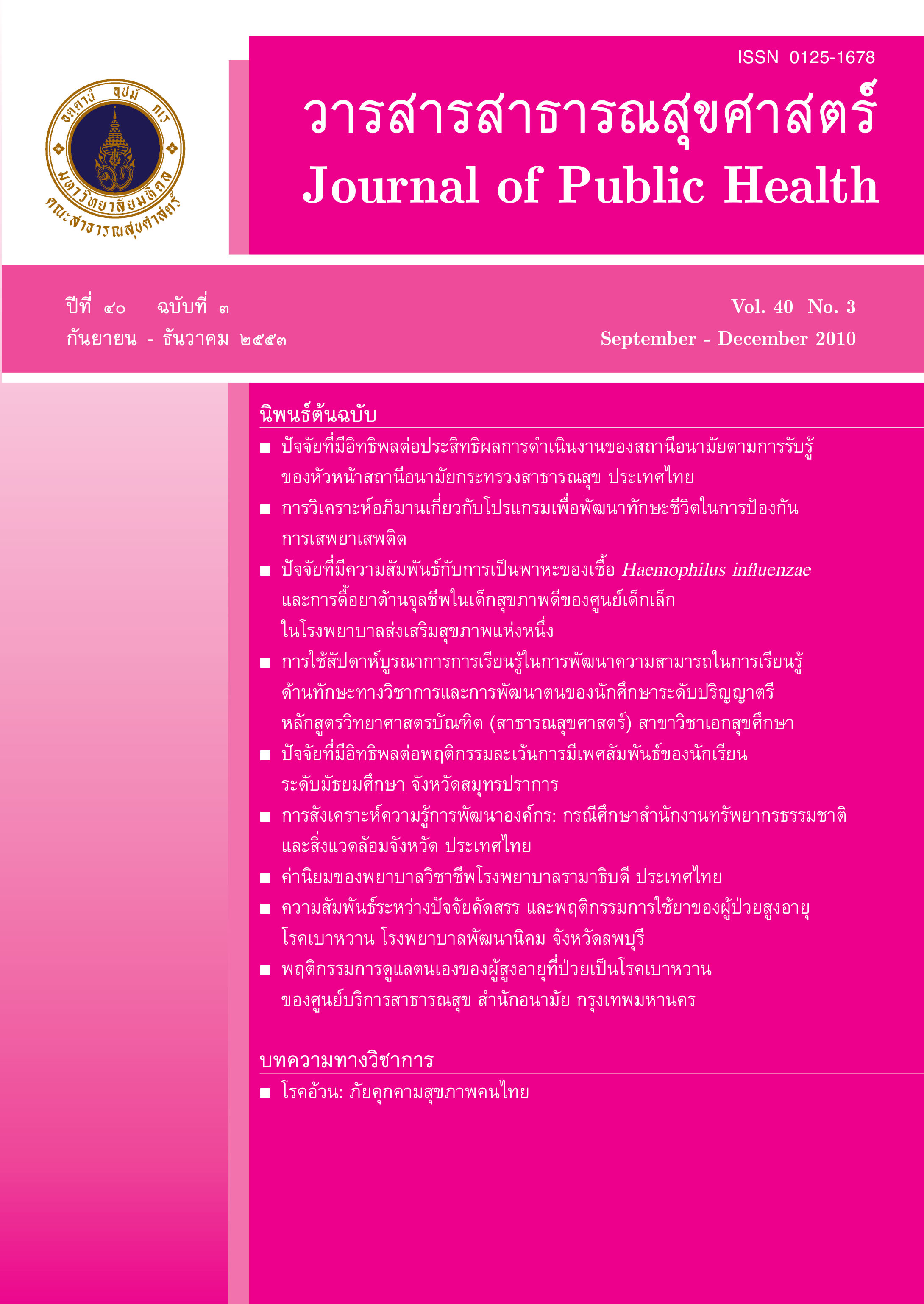การวิเคราะห์อภิมานเกี่ยวกับโปรแกรมเพื่อพัฒนาทักษะชีวิต ในการป้องกันการเสพยาเสพติด
Keywords:
Meta-Analysis, Life-skill development, Drug abuse prevention, การวิเคราะห์อภิมาน, การพัฒนาทักษะชีวิต, การป้องกันยาเสพติดAbstract
ABSTRACT
The purpose of this meta-analysis was to summarize the characteristics of life-skill development programs, establish whether particular characteristics of the programs were associated with their effectiveness in preventing drug abuse. The research resources were 36 reports on life-skill development programs for drug abuse prevention published in Thailand between 1997 and 2008. Data were collected using a coding scheme and a report quality assessment form. The content validity of the tools was examined by five experts. Descriptive statistics were used to summarize the program characteristics and effect size calculation was used to evaluate the effectiveness of the programs. The study revealed that majority of the programs were master theses , mostly from Master of Science program on health education. Their report quality were considered at a high level. Most studies were conducted using quasi-experimental design (experimentalcontrol group) and their samples were students in junior high schools, with sample size of 30-60 selected by simple random sampling. The common statistical test was t-test. Most programs focused on assertive skill, and the selected intervention was group discussion, with a length of 60 to 90 minutes per session. The effectiveness of 36 studies on the development of life-skills for drug abuse prevention was determined and an overall effect size of 0.09 was indicated. The particular characteristics of the programs associated with their effectiveness on preventing drug abuse were using multi-theoretical foundations (weighted mean effect size; WES = 0.28), single aspect of skill development (WES = 0.15), communicationfocused (WES = 0.99), integrating all learning domains: cognitive, affective and performance domains (WES = 0.18), knowledge and skill oriented (WES = 0.19), and implementing period from 6 to 12 months (WES = 0.09). The results demonstrated that the program on development of life-skills for drug abuse prevention should be designed based on the evidence of particularly effective characteristics. Extension of the program to the teenagers in other settings is highly recommended to both public and private agencies.
Key words: Meta-Analysis, Life-skill development, Drug abuse prevention
Downloads
Issue
Section
License
Creative Commons License CC-BY-ND


